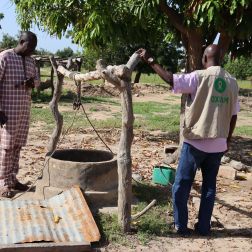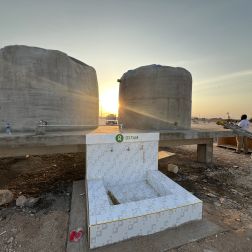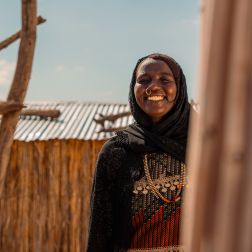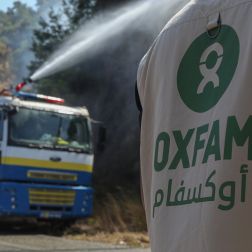- 6 mins read time
- Published: 1st October 2020
Hearts have broken many times over Beirut but never like this

by Mayssam Zaaroura
For as long as I can remember, Beirut has occupied a part of my heart in a way like no other place on earth. On 4 August, that part shattered into a million tiny shards along with the explosion that levelled the port city. Sharp and painful, I bled as if with a million tiny cuts.
Countless Lebanese networks came alive in shock and horror with those of us trying to understand what happened as we searched frantically for family and friends thousands of kilometres away.
During this time, many of us kept sharing a common phrase – our hearts have broken many times over Beirut but never like this.
Explaining my love of Beirut is equal parts tricky and hard. Since leaving the city, I have spent my life thinking of how and when to return. I was born in Lebanon, left like millions of families, and couldn’t wait to return for a stretch of unforgettable and formative years.
My time there was long enough for me to live a full and rich career as a journalist and end it.
Long enough to find my little streets, shops, and cafes in Gemmayzeh that are now destroyed.
Long enough to build countless traditions with family, friends, and memories with my mom, like finding a hidden gem named Mayrig that served Armenian food. It is also now gone.
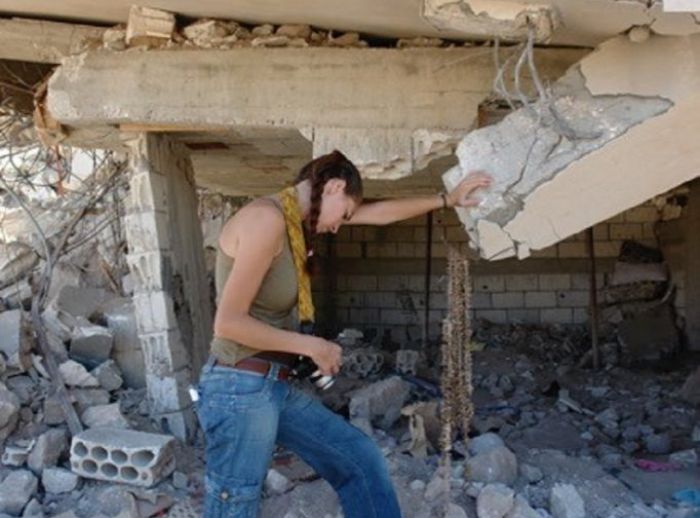
My time there was long enough for me to live a full and rich career as a journalist and end it.
Long enough to find my little streets, shops, and cafes in Gemmayzeh that are now destroyed.
Long enough to build countless traditions with family, friends, and memories with my mom, like finding a hidden gem named Mayrig that served Armenian food. It is also now gone.
Long enough to fall in love, have my heart broken, and then healed.
Long enough to forge lifelong friendships.
Long enough to breathe in the Mediterranean Sea air and have it flow through my veins.
Long enough to live through a war, develop post-traumatic stress disorder, risk my life chasing stories while street bombs were being secretly set for Beirut’s activists and prominent voices, get broken down with anger and long enough to realise I had to leave.
And yet, it turns out it wasn’t long enough.
Lebanon is one of the few countries in the world where the number of diaspora Lebanese outnumber those living there. People of Lebanese origin – whether born there, of Lebanese ancestry, or even those with a tenuous link to the country and more specifically to Beirut – experience an inexplicable link to this country that transcends logic.
In a strange way, Beirut is etched into our psyche in a way that is mythical, magical, and almost whimsical. We all dream of returning one day, but it takes a certain kind of stamina and resilience to make it in Beirut. That’s what the city’s bones are made of – steel, stone and resilience.
Image: The author working as a journalist covering the 2006 war with Israel in which the south of Lebanon and the southern suburbs of Beirut were levelled. Photo: Shawn Jackson
Edward Said, a Palestinian writer, once wrote of Beirut: “These incomprehensibly brave people are too stubborn, too unwilling to start lives over again, too anchored in the city to leave… their mere survival, in ways we can neither trace nor reconstruct, seems miraculous.”
The magnitude of what has happened is hard to fathom. Not just the size and sheer force of the explosion. It’s also the longer-term impact on a country already struggling with the weight of a broken economy, severe inequalities and the COVID-19 pandemic that had already stretched the country’s resources and health systems to non-existent.
And yet, despite the struggles, the love for this city is something passed down from generation to generation. Whether it’s mornings listening with family to Fairouz and Majida el-Roumi waxing lyrical about the city, or the zaatar and labneh that we were fed throughout childhood, or the endless search for that smell of jasmine that just wafts over your shoulder when you least expect it. It’s rooted in you.
If heart tissue were made of memories, the strongest ones you would find holding it together are the ones that shimmer with memories of Beiruti gold.
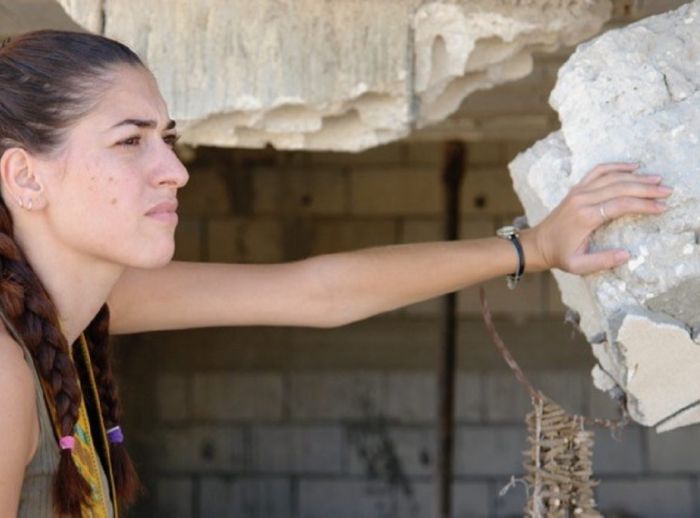
It is as he sat in refuge, in this sanctuary city, that the Palestinian poet, Mahmoud Darwish wrote his book Memory for Forgetfulness: August, Beirut 1982. As he desperately sipped his Beiruti coffee, and listened to the sounds of a city under siege, he wrote, “…we have nothing to lose, so long as Beirut is here and we’re here in Beirut.”
The richness of Beirut is seeded in its history. Revolutions have started in Beirut and feminists like May Ziadeh, Layla Baalbaki, and Laure Moghaizel have forged incredible gains for Arab women, lost them, kept pushing for more, and paved the way for women like my formidably feminist mother, and for me to continue the fight.
I spent year after year as a young girl, surrounded by my mother and aunts, listening to the same stories of how they travelled across the country, in the dead of night, during a brutal civil war, to deliver important strategic documents to fighters in the north. Those are the roots of my career fighting for women’s rights. It is where I forged my beliefs that women are not victims without agency, but strong, brave and heroic in times of greatest need.
I have no doubt that the women of Beirut – the nurses, the doctors, the firefighters, the soldiers, the mothers – will yet again rebuild this city and fight for justice for those who have suffered in this tragedy.
But that fight can sometimes be complicated. Despite being born in Lebanon to a Lebanese mother, I am of Palestinian origin, which makes me ineligible for citizenship. This is an injustice that Lebanese activists and organisations have been fighting for decades – the right for mothers to pass on their citizenship to their children. And yet to date, it’s something I am not able to pass on to my son.
Nevertheless, to me, like many, that piece of paper matters little. In my heart, I will always be Lebanese no matter what passports I hold. My son will always be a descendant of strong, proud, Phoenicians. And someday, I imagine, he will hold the same strident love for Beirut that I do.
He will visit his ancestors, listen to Fairouz sing her love for the city, eat zaatar and labneh and continue the endless search for that elusive scent of jasmine. He will walk through streets rebuilt for the hundredth time.
For they will be rebuilt. Make no mistake. Each time with more grandeur, and even more steel and resilience.
Because Lebanon, after all, is home to some of the oldest cities in the world and if there is another thing that the Lebanese are known for – apart from their stubborn spirit – is their endless love for their Beirut.
Mayssam Zaaroura was a former journalist in Lebanon and now is Oxfam Canada’s Women’s Rights Knowledge Specialist for Ending Violence Against Women and Girls (VAWG).
